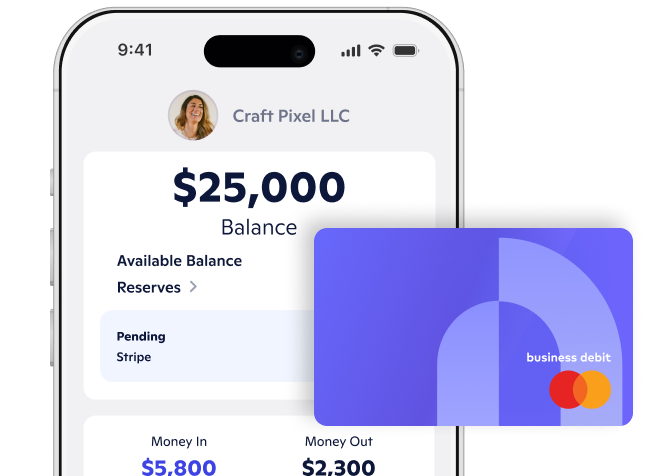
f you need financing to reach your business's next goal, you've probably heard about term loans. Business borrowers choose term loans to fund specific purchases, such as inventory or equipment, like an individual might apply for a term loan to pay the bills.
But what is a term loan?
A term loan is a commercial loan that a business repays over a specific period. You receive a lump sum and make regular payments until you've repaid the amount you borrowed, plus agreed-upon interest. Here's what you need to know if you're considering applying.
Types of term loans
Lenders categorize term loans based on the length of the repayment period. Each type serves a different business purpose.
Short-term loans
Short-term loans are smaller-scale lending products. Loan amounts usually range from $100 to $100,000 and are payable within six months to a year. Short-term loans of 12 to 18 months are possible but rare.
Short-term loans are helpful if you need immediate funding for a smaller purchase, such as a company car or computer equipment. The approval time is usually faster than that of a longer-term loan, and the application process isn't quite as rigorous.
Intermediate-term loans
Intermediate-term loans fill the gap between short- and long-term loans. Terms usually range from one to three years; funding amounts can be up to $1 million.
According to the lender Funding Circle, businesses often choose intermediate-term loans to fund purchases that will generate revenue before the loan matures. For instance, if you own a small retail business and want to open your first brick-and-mortar store, you might use an intermediate-term loan to cover the store's rent until it starts making enough sales.
Long-term loans
A long-term loan can have a repayment term as short as one year or as long as 25 years, though most have terms in the two- to five-year range.
Because these loans have the most prolonged repayment periods, they also tend to be larger than short- and intermediate-term loans. A business owner may use the money from a long-term loan to buy property, upgrade equipment, or even acquire another business.
However, long-term loans don't have to be large. You can also choose a long-term product if you need a moderate amount of funding but can't afford the repayment schedule of an intermediate-term loan.
Applying for a term loan
Applying for a term loan is like applying for any other type of business loan. You'll need to do some legwork beforehand to make sure you're making the best choice for your business.
Preparing a business plan
Most lenders will ask you for a business plan when you apply for funding. They want to see that you've built a strategy for your business and have a plan that will allow you to repay the loan.
Writing a business plan takes time, but it pays off. You'll use it whenever you apply for a loan, investment, or line of credit. It'll also help you make more informed decisions, hire promising talent, and identify where you can make changes to strengthen your business.
Lenders will expect to see the standard business plan format. The U.S. Small Business Administration's (SBA's) comprehensive guide will lead you through each step and ensure you don't miss anything. It also offers sample language so your business plan sounds informed and professional.
Researching potential lenders and loan terms
Choosing the right lender is an investment in your company's bottom line. Commit to making a list of available funding sources and the different terms and interest rates available through each.
Traditional private loans
Credit unions and banks of all sizes offer varying types of business loans. According to the U.S. Chamber of Commerce, large banks have the resources to fund larger loans, but smaller local banks make it easier to develop one-on-one relationships with lenders. These personal connections may translate to easier approvals.
Federally-backed loans
The SBA partners with private lenders to guarantee small business loans. The SBA guarantees repayment of up to a certain amount, which it offers the lender in case the borrower defaults. This reduces the risk for lenders and lets them offer more attractive terms.
Most SBA loans are long-term products with terms of up to 10 or 25 years, depending on the loan's intended use. Check with an SBA-approved lender for specific eligibility rules.
Digital lending platforms
Online lending platforms, also known as fintechs, let you apply for loans and other types of financing digitally. Many of these programs have streamlined application processes that shorten the time to funding.
Meeting with lenders and submitting an application
Many lenders will want to meet with you, virtually or in person, to discuss your lending needs. Preparing to earn the lender's trust and respect is essential.
First, gather as much financial documentation as possible to show the lender you can afford to repay the loan.
Be prepared to discuss the company's assets and the business direction. Your business plan will come in handy here. In addition, prepare talking points about revenue projections, industry trends, and anticipated growth.
Remember, you get to ask questions, too. Lenders may be unable to give you details about rates and terms before processing your application. However, you can ask for typical ranges, given your creditworthiness. Also, remember to ask about other fees or requirements for the loan you're considering.
When you've chosen the best lender for your needs, ask to submit a formal application. Most lenders will check your credit, so make sure you've been paying all your bills on time.
Understanding loan terms and repayment
With any loan, it's essential to understand what you're committing to.
Interest rates and fees
Term loans may have variable or fixed interest rates. Regardless of market trends, a fixed interest rate will stay the same until you repay the loan. A variable interest rate will change based on a market index, a benchmark for overall economic shifts.
Lenders set interest rates based on the cost of funding and the bank's perceived risk in lending to you. The stronger the financial picture in your application, the lower you can expect your interest rate. Borrowing more or extending your term may also reduce your rate since you'll pay more in interest overall.
Also, check with your lender about the fees associated with your loan. Standard small business loan fees cover specific application or lending process aspects. For example:
- Origination fees cover the costs of processing your application.
- Underwriting fees cover the cost of reviewing your data and evaluating your risk.
- Administrative fees cover the cost of maintaining the loan.
- Payment type fees cover paying in a specific way, such as by check or wire transfer.
- Prepayment fees cover "lost" interest if you pay off the loan early.
Check which fees your lender charges and how they affect your total payment. For example, some loans might have low rates but high fees.
Loan repayment terms and schedules
Most term loan repayments follow an amortization schedule, which spreads the principal and interest over the life of the loan. There are two types of amortization structures.
- Equal payment loans, or blended payment: You repay the same amount every month. As you pay off the balance, each payment includes less interest and more principal.
- Equal amortizing loans, or "principal+interest" structure: The lender divides the loan amount into equal principal payments. Each payment includes that portion of the principal plus interest on the outstanding balance.
You should be able to obtain a copy of your loan's amortization schedule on request. The schedule will include, for each payment:
- Payment amount
- Principal amount included
- Interest included
- Outstanding balance
Check out our business loan calculator to learn how much you’ll pay over the course of a given loan.
Collateral and personal guarantees
If you default, some business loans will ask you to offer collateral or a personal guarantee to cover the lender.
A personal guarantee is a signed document promising you'll repay the loan with your assets if the business fails. The lender can liquidate your assets if you sign a personal guarantee and can't repay your business loan.
Collateral is a specific asset you offer to guarantee the loan. If you default, the lender can seize that asset to recoup its losses.
SBA lenders require collateral for loans above $25,000. Otherwise, lenders use their judgment and internal policies to decide whether to require collateral or a personal guarantee.
Pros and cons of term loans
Term loans provide an influx of cash that can help your business grow, but they're not suitable for every situation. Here are some key factors to consider.
The pros
- Predictable repayment schedules. Lenders set your amortization schedule when you take out the loan, so you'll be able to budget for repayments. However, variable-rate loans are more unpredictable due to changing interest rates.
- Lower rates. Term loans tend to have lower interest rates than other types of business financing, such as lines of credit.
- Financing for specific business needs. Term loans are lump-sum products, so you can apply for what you need and avoid over-borrowing.
The cons
- Lengthy turnaround time. Reviewing and closing a small business loan can take between 60 and 90 days, depending on the lender.
- Financial risk. If you don't repay the loan, the lender may come for your collateral or the personal assets covered in your guarantee.
Takeaways
Term loans are essential resources for small businesses with funding needs. Instead of chasing investors or scrounging personal assets, you calculate what you need and apply with a lender. Then, you pay it back according to a pre-set schedule.
If you're considering a short-term loan for your business, start by ensuring your finances are in order. Novo can help with powerful, user-friendly digital business banking tools. From customizable invoices to record-keeping that integrates with your existing tech stack, Novo can help you take your business to the next level. Get started today.
Novo Platform Inc. strives to provide accurate information but cannot guarantee that this content is correct, complete, or up-to-date. This page is for informational purposes only and is not financial or legal advice nor an endorsement of any third-party products or services. All products and services are presented without warranty. Novo Platform Inc. does not provide any financial or legal advice, and you should consult your financial, legal, or tax advisors.
Novo is a fintech, not a bank. Banking services provided by Middlesex Federal Savings, F.A.: Member FDIC.
%201.png)
.png)




